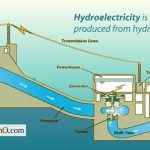Understanding the HVA Examiner
Hazard Vulnerability Analysis (HVA) plays a crucial role in identifying and mitigating threats to communities and organizations. HVA examiners are the professionals who conduct these assessments, ensuring preparedness and resilience. This comprehensive guide explores the qualifications, responsibilities, and resources essential for HVA examiners.
What is an HVA Examiner?
HVA examiners are specialists who assess potential hazards and vulnerabilities, analyzing their potential impact on systems, infrastructure, or communities. They play a critical role in developing strategies to mitigate risks and enhance preparedness. Think of them as detectives who investigate potential threats and develop plans to prevent or minimize their impact.
Qualifications
A strong foundation in emergency management, risk assessment, or a related field is typically required. While specific certifications may not always be mandatory, they can significantly enhance an examiner’s credentials. Relevant certifications likely include those related to disaster preparedness, business continuity, and risk management. Further research into certification requirements is recommended for aspiring examiners.
Responsibilities
HVA examiners perform a range of tasks, including:
| Responsibility | Description |
|---|---|
| Leading HVA Teams | Guiding and coordinating assessment teams to ensure effective collaboration. |
| Hazard Identification | Identifying potential threats and vulnerabilities, both internal and external. |
| Vulnerability Analysis | Assessing susceptibility to identified hazards and pinpointing weaknesses. |
| Risk Assessment | Evaluating the likelihood and potential impact of each hazard. |
| Mitigation Strategy Development | Designing and implementing plans to reduce or eliminate identified risks. |
| Documentation and Reporting | Maintaining records and communicating findings to stakeholders. |
Conducting an HVA: A Step-by-Step Guide
The HVA Process
The HVA process is systematic and typically involves the following steps:
-
Planning and Preparation: Defining the scope, gathering resources, and forming the HVA team.
-
Hazard Identification: Brainstorming potential hazards, including natural disasters, technological failures, and human-caused events.
-
Vulnerability Analysis: Assessing the vulnerability to each identified hazard.
-
Risk Assessment: Evaluating the likelihood and potential impact of each hazard.
-
Mitigation Strategy Development: Developing strategies to mitigate or eliminate the identified risks.
-
Documentation and Reporting: Compiling a comprehensive report summarizing findings and recommendations.
Tools and Resources
HVA examiners utilize various tools and resources, including specialized software for data analysis, industry best practices, and regulatory guidelines. Further research can reveal specific tools commonly used in the field.
Regulations and Standards
Staying informed about relevant regulations and standards from organizations like The Joint Commission and CMS is crucial for HVA examiners.
Becoming a Certified HVA Examiner
Why Certify?
Certification validates an examiner’s expertise and demonstrates a commitment to professional standards, potentially leading to career advancement and increased job security.
Steps to Certification
While a universal HVA examiner certification may not exist, various specialized certifications and training programs are available. Researching ACTAR accreditation and exploring programs offered by organizations like the Forensic Training Group, IPTM, and AIA is recommended.
- Research Certifications: Explore options based on your career goals.
- Select Training: Choose programs aligned with your chosen area of focus.
- Complete Requirements: Fulfill coursework, training hours, and examinations.
Maintaining Certification
Maintaining certification often involves continuing education, attending conferences, and staying abreast of emerging technologies and best practices.
Finding Qualified HVA Examiners
Types of HVA Examiners
Different types of examiners specialize in various aspects of HVAs. Accident reconstructionists focus on the physics of crashes, forensic engineers analyze vehicle mechanics, and law enforcement officers document the scene and collect evidence.
What to Look For
When selecting an examiner, look for ACTAR certification, membership in professional organizations like NAFE or SAE, and experience with heavy vehicle accidents.
Where to Find Examiners
Qualified examiners can be found through professional organizations, expert witness databases, and specialized accident reconstruction firms.
Hiring Tips
Carefully review credentials, ask for references, and clarify the examiner’s process and fees before hiring.
Essential HVA Examiner Skills
Key Skills
Essential skills for HVA examiners include:
- Technical Proficiency: A strong understanding of IT systems, security protocols, and relevant technologies.
- Analytical Skills: The ability to analyze data, identify patterns, and connect the dots to understand the bigger picture.
- Communication Skills: Effectively conveying complex technical information to diverse audiences.
Developing Expertise
Continuous learning through training programs, conferences, and industry publications is essential for staying current in the ever-evolving cybersecurity landscape. Resources like the CISA website offer valuable information and tools for HVA examiners.
Resources for Skill Enhancement:
| Resource Type | Description |
|---|---|
| Online Courses | Cover specific topics like risk assessment, etc. |
| Certifications | CISSP, CISM, etc. |
| CISA Website | Offers valuable resources and guidance. |
| Industry Publications | Stay up-to-date on the latest trends and best practices. |
This comprehensive guide aims to provide a thorough understanding of the role, responsibilities, and resources associated with HVA examiners. As the field continues to evolve, continuous learning and adaptation are crucial for success.
- Hydroelectric Power Basics How Water Is Used For Electricity - February 26, 2026
- Portable Water Generators Power Off-Grid Homes and Adventures - February 25, 2026
- Portable Hydroelectric Power Generators Light Up Off-Grid Living - February 24, 2026
















